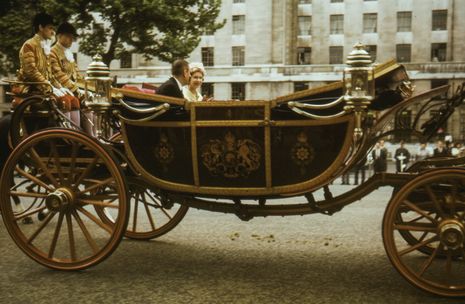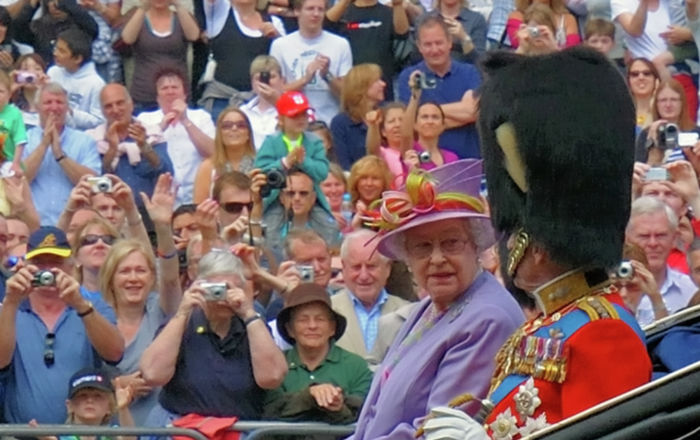The Crown jeopardises the mysterious charm that kept the monarchy stable for centuries
The normalisation the monarchy is undergoing could present Britain as a country at the behest of unelected people – no different from the population they reign over.

For a worryingly long time, I have been addicted to The Crown. What I once thought was a programme that only attended to the nostalgic impulses of OAPs turned out to be a pompous version of Geordie Shore. Though it’s difficult to work out which member of the Windsor family best resembles Charlotte Crosby, the illicit sexual escapades, behind-the-scenes gossiping, and royal spats wouldn’t have been out of place in Wallsend, Newcastle. For an institution steeped in historical tradition, adorned by expensive displays of power, the monarchy seemed all too human.
Though this humanity may seem well-placed in an institution with so much social influence, there are some questions it raises. Should monarchy modernise and exaggerate this humanity? Should it remain in its ways and mind the gap between royal and subject? And, most importantly, can a monarchy survive if a comparison between Gaz Beadle and the sixth in line to the throne isn’t that far-fetched?
Season 1, Episode 7 of The Crown begins to address these questions. As the Queen is faced with the devastating news of her lack of knowledge concerning worldly affairs, she resolves to become better educated. Though the repetition of Bagehot’s division of the constitution ad nauseum is second nature, the thought of sitting an exam in a sweaty gym hall is anathema to her. Why worry about the boring details of photosynthesis? She was born to focus on royal business. This scene captures the root of what monarchy rests on: the gap between royalty and subject. If this gap narrows too much, the throne becomes unstable.
What remains to distinguish them from us? The threat of the narrowing gap from the throne is also stressed in Tom Hooper’s The King’s Speech. King George VI’s heroic battle with his stammer was all in pursuit of kingliness. For him to succeed as King and successfully unite the nation during wartime, any alleged impediment had to be erased. The valiant battle that Hooper’s Oscar-winning film imagines, however, wouldn’t have been fought in the same way by the monarchy of today. With Prince William starring on Peter Crouch’s podcast and embracing the idea of Prince George being in the Premier League, the image of relentless oratory lessons, long suede overcoats, and abnormally tall top hats has started to fade. Certainly, this is no bad thing. That George VI had to rally against his stammer, in the face of relentless bullying from family and peers, was a sorry consequence of what monarchy once stood for. And that Prince George wouldn’t suffer under the same pressures is progress - not regress.
It does, however, signal a marked shift in the expectations of monarchy. As we continue to normalise royalty and recognise them as real people with emotions and problems, what remains to distinguish them from us? With TV dramas unveiling the once-confidential crises of our favourite royals, the humanity of monarchy is difficult to escape.
The monarchy is a symbol that unites the nation, yet it’s difficult to picture a population banding together around a former Aston Villa striker. The normalisation the monarchy is undergoing could present Britain as a country at the behest of unelected people – no different from the population they reign over. The more it is normalised, the more acute their humanity becomes.
The alternative? If Prince George ditching the Wimbledon suit and tie is a step too far, then instead of modernising, the royal family could retain its excessive traditions. Royal history, however, has signposted the danger of this road. Marie Antoinette’s infamous declaration that the peasants of revolutionary France should 'eat cake' to rid them of their hunger represents exactly why. A monarchy with its finger curled around a porcelain teacup, instead of on the pulse of national will, is bound to fail. For what reason, after all, would we subsidise the lives of those with values so far removed from our own?
So, The Crown and The King’s Speech present the monarchy with a dilemma. Either it modernises and jeopardises the mysterious charm that kept it stable for centuries, or it stays much the same and is ousted by public opinion. Whichever side of the battleground King Charles decides to fight alongside, it will be this challenge which characterises his reign. And, if it goes awry, it will be a fight which shapes the stories of the British monarchy’s collapse for centuries.
 Comment / Plastic pubs: the problem with Cambridge alehouses 5 January 2026
Comment / Plastic pubs: the problem with Cambridge alehouses 5 January 2026 News / Uni-linked firms rank among Cambridgeshire’s largest7 January 2026
News / Uni-linked firms rank among Cambridgeshire’s largest7 January 2026 News / New movement ‘Cambridge is Chopped’ launched to fight against hate crime7 January 2026
News / New movement ‘Cambridge is Chopped’ launched to fight against hate crime7 January 2026 News / SU stops offering student discounts8 January 2026
News / SU stops offering student discounts8 January 2026 News / Cambridge businesses concerned infrastructure delays will hurt growth5 January 2026
News / Cambridge businesses concerned infrastructure delays will hurt growth5 January 2026









